#philosophy king.......
Text
cardan: jude! hi jude! i was jk!
jude:
jude:
cardan:

#i saw it and that IS cardan#when you cry#just post#that's my philosophy#jensosophy#cardan greenbriar#jude duarte#jurdan#the cruel prince#the wicked king#the queen of nothing#the folk of the air#tfota memes#tfota#holly black#holly blacj#chai anna jude!!!#incorrect tfota
110 notes
·
View notes
Text

#philosophy#quotes#David Foster Wallace#The Pale King#Wallace#heroism#courage#virtue#character#ethics
308 notes
·
View notes
Text
"What's a Zen?" he said.
The Fool's bells tinkled as he sorted through his cards. Without thinking, he said: "Oh, a sub-sect of the Turnwise Klatch philosophical system of Sumtin, noted for its simple austerity and the offer of personal tranquillity and wholeness achieved through meditation and breathing techniques; an interesting aspect is the asking of apparently nonsensical questions in order to widen the doors of perception."
"How's that again?" said the cook suspiciously. [...]
The Fool hesitated with a card in his hand, suppressed his panic and thought quickly.
"I'faith, nuncle," he squeaked, "thou't more full of questions than a martlebury is of mizzensails."
The cook relaxed.
Terry Pratchett, Wyrd Sisters
#king verence ii#wyrd sisters#discworld#terry pratchett#court jester#in disguise#philosophy#zen#questions#meditation#jokes#expectations#suspicion#the philosophical system of sumtin#apparently nonsensical questions#mizzensails
141 notes
·
View notes
Text
me writing two characters who are ideologically opposed and also implied to be in an ongoing prank war with each other: yeah this is a fun vitriolic rivalry to have going on between two background characters
me, typing up what I'd written some months later: oh. these two are fucking.
#she's a Popular Girl(TM). he's a weed-dealing philosophy student.#she's named Regan because Regan was one of Cordelia's sisters in King Lear and I'm hilarious.#he calls her Ronald.#girls ghosts and meathooks
96 notes
·
View notes
Text
So I binged Centaurworld and have spent the last week processing and need to get it out of my system because I havent seen anyone else with this take -
I find it weird that the crimes of the General and Elk are laid at the feet of the Elktaur. After the split, the Elktaur no longer existed; the Elk and General may have each encompassed a half of who he was, but became separate entities by splitting.
The Elk and General were of the Elktaur, but weren't themselves the Elktaur. It's entirely possible I'm digging too deep into what was meant to be a Y7 kids show, but it really bugged me because intention, potential, and action aren't the same things. The Elktaur may have always had the potential to become what the Elk and General did, but he didn't commit any of the actions. Because he no longer existed. We can argue about intentions all day long without getting anywhere; partly because the show never really got into that aspect, but mostly because, in the end, what matters is action. You can intend to cause hurt without ever actually doing so - intention and potential do not make one evil/ a criminal/ etc.
Like, if I clone myself and that clone goes on to become an interdimensional war criminal, am I supposed to be punished as well? Of course not - the copy was me, until it wasn't.
This is a classic Mind-Body Problem and fits the scenario around the Elktaur - can his two component parts really be considered to be a single entity? But if they actually were a single entity, none of this would be happening at all. If we brought a whole version of the Elktaur to stand before his components, would he also be considered part of that conglomerate?
Is one not the sum of their experiences? How then, can two beings with very different experiences be said to be the same? Isn't that why, post-unification, the Elktaur has two voices?
Just to be clear, I'm totally on board with the actual events of the ending - I think killing the guy was a mercy, but that's a different discussion - but I find the reasoning to be questionable. I blame Netflix and thier pattern of canceling shows too early for the writing team not being able to delve further into some really interesting philosophical conundrums surrounding the plot. I did enjoy the show overall, but the Elktaur and his pieces were by far the most interesting thing going on. I totally understand that the juxtaposition of wacky and serious was 100% the point, but that plot thread was simply too good - it made everything else feel like a distraction 😂
146 notes
·
View notes
Text
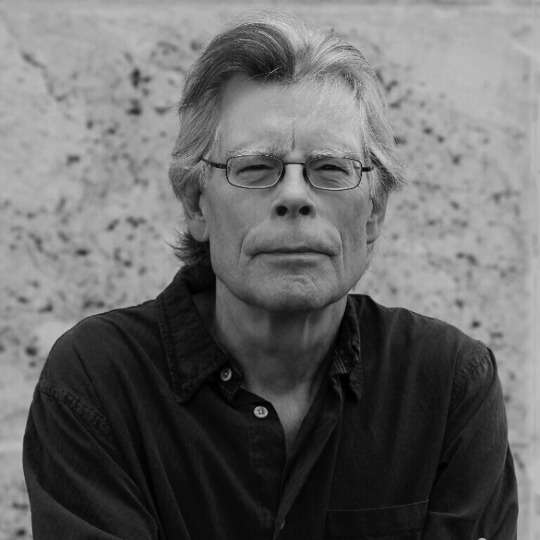
“It always comes down to just two choices. Get busy living, or get busy dying.”
— Stephen King
#stephen king#literature#lit#literature lover#literature quote#literature quotes#english literature#philosophy#philosophical#philosopher#philosophers#philosophy of life#philosophy quote#philosophy quotes#quote#quotes#excerpts#excerpt#quoteoftheday#booklover#book#bookworm#books#booklr#book quotes#book quotations
65 notes
·
View notes
Text
Any religion that professes to be concerned with the souls of men and is not concerned with the slums that damn them, the economic conditions that strangle them, and the social conditions that cripple them, is a spiritually moribund [at the point of death] religion.
Martin Luther King Jr., speech, 1960
#martin luther king jr#quote#humanity#society#civilization#global community#human family#brothers and sisters#religion#philosophy#morality#spirituality#maturity#fairness#justice#cooperation#unity#peace#prosperity#respect#love
141 notes
·
View notes
Text

From Coretta Scott King’s Harvard Alumni Bulletin (July 1, 1968)
28 notes
·
View notes
Text
The Twenty-First Night
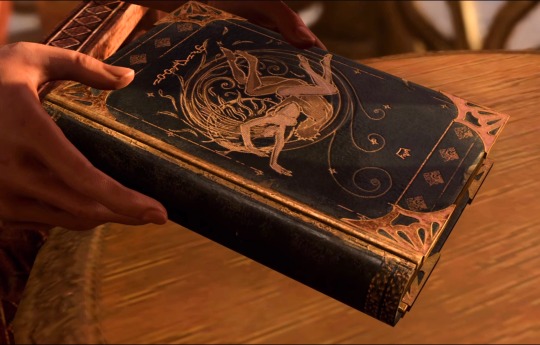
A bit of 1001 Nights-inspired poetry that I wish was in The Art of the Night to make it more than just a spicy yoga manual or a spellbook. This is part of the longer scene I wrote, but I wanted to share it separately too, because I've been inspired by other BG3 poets. I'm not really a poet, but I did my best <3
~*~*~
That night, the king met his beloved once more in their chambers.
"Dearest one," said he,
"Gold I have given thee,
and jewels from my store;
chains for thy neck
and bands for thy wrists;
and still, thine eyes shine more brilliantly
than any treasure in my kingdom.
"What gem in all the realms
can be more precious than thy gaze?
What more can I give to you,
my beloved, so that you may know
the ardent depths of my heart?
What more, when thine eyes alone
make all riches seem as dull iron?"
"Tender-hearted king," said the queen,
"I need neither gold nor gems;
my love is not so cheaply bought
nor so willingly sold.
And yet, already thou possess
that which I long for most.
Thy steady gaze, my love,
and thy faithful hand are all I ask.
"Come, take my hand,
and look beyond this simple visage.
I will bare my soul to thee, this night,
and gaze boldly at thine.
For more than bone and blood are we,
but spirits merely housed in flesh.’"
~*~*~
#cue the astral sex#bg3#bg3 fic#my fic#gale#gale dekarios#might delete later but idk idk#when gale picked up this book i immediately was like#tell me the romance gale#tell me the 1001 nights romance between this king and queen#what poems did they whisper to one another#what philosophies did they share#but alas the game just made it a spellbook#so yeah i wrote this#also why 21? no idea I just picked an early number
25 notes
·
View notes
Text
So uhh...

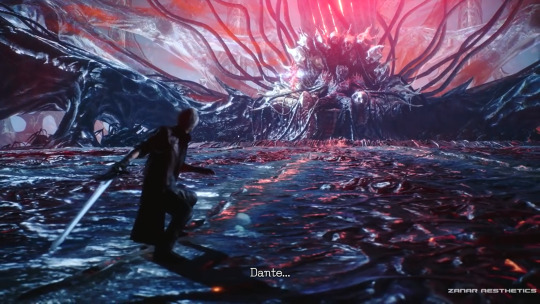
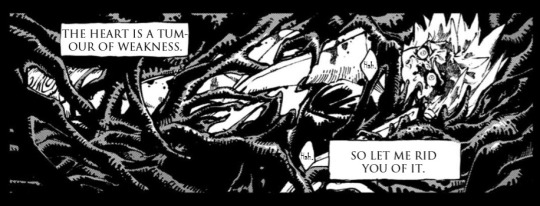


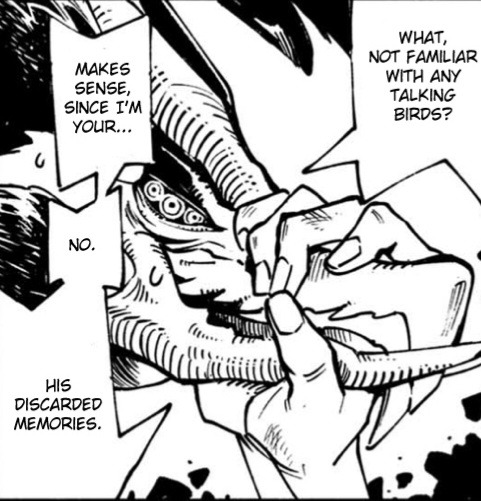
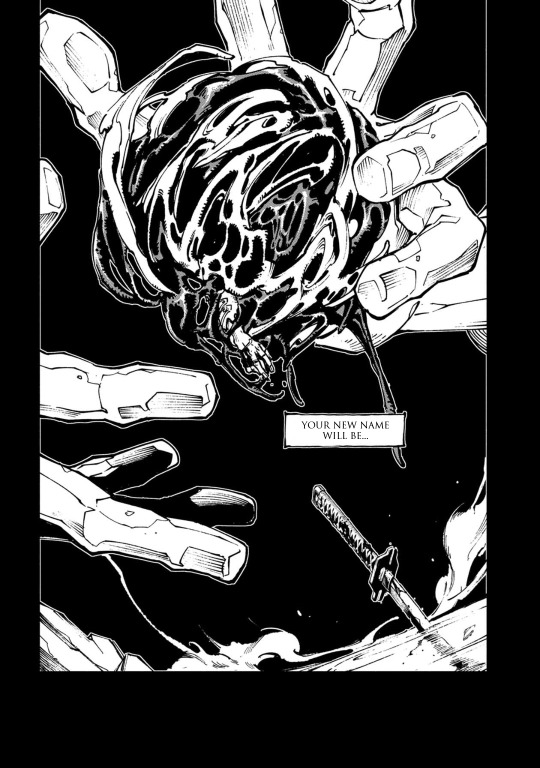
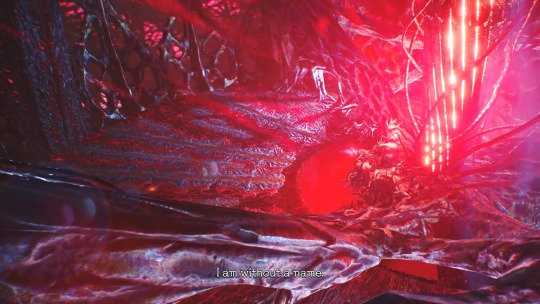
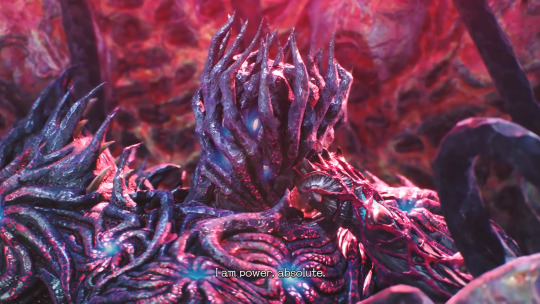
Anyone wanna talk about this?
#devil may cry#recreating your tormentors methods/philosophies and imitating them to project the total control they had over you is... certainly smth#mundus straight up affected vergil so thoroughly that even w those memories removed he copies the behaviors#thats probs why he made lady and trish into hosts. hes literally recreating his trauma from the seat of power#i wonder if trish understood that once she knew exactly who urizen was and thats part of why she was kind to V#but holy shit am i OBSESSED w this#also anyone notice how the qliphoth vines on his face go up into a crown?#hes such a drama king even when hes on demon life support lmaoooo
71 notes
·
View notes
Photo
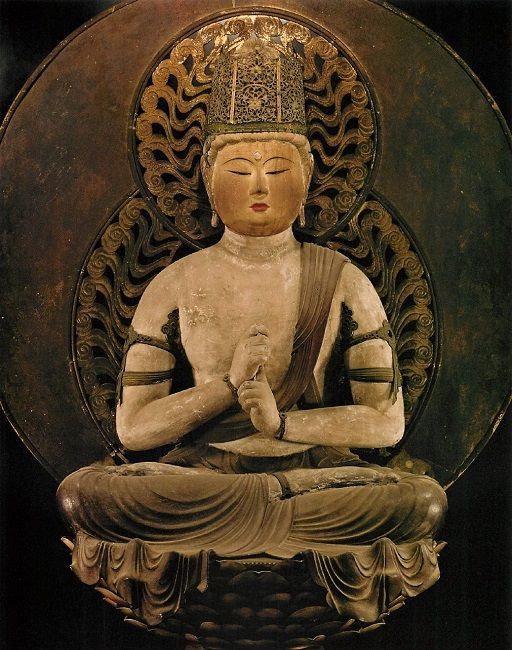
Legends and myths about trees
Trees in Buddhism (3)
The Golden Wheel King – Maitreya appearing once every 3,000 years with the the flowers of the udumbara (Ref)
His body colour is gold, crowned with a crown of seven treasures, and light emanates from its entire body. He makes a sign and sits in the full lotus position on a lotus flower decorated with the seven treasures. The lotus flower on which he is seated has a jeweled crown and a treasure pond beneath it.
The most outstanding of the Wheel-Turning Kings, the Golden Wheel King, has an extremely superior merit of the buddhosnisa (the superior brain of Tathagata, the divinity of the intellect to save people).
According to the description in the Buddhist scriptures, the concept of the Wheel-Turning King (Pali: chakravarti, Skt. cakravartin) was roughly as follows.
The world goes through cycles of prosperity and decline. In times of prosperity, the human lifespan is 80,000 years, but as human virtue is lost, the lifespan becomes shorter, and in the age of darkness, when all good is lost, it is 10 years. Thereafter, human virtue is restored, and once again we enter the age of prosperity, when the lifespan is 80,000 years.
It is during this age of prosperity that the transmigration of the Wheel-Turning King will emerge, as a result of his good deeds in his previous lives. He has the same 32 auspicious signs (Ref), signifying a great being like the Buddha, and rules the earth up to the four oceans with the power of the law, without using force of arms.
There are 4 types of Wheel-Turning Kings: the Golden Wheel King, the Silver Wheel King, the Bronze Wheel King, and the Iron Wheel King. The Iron Wheel King has the Iron Wheel and rules over one of the 4 continents that were considered to exist on the earth in the ancient Indian worldview. Likewise, the Copper Wheel King has the Copper Wheel and rules over two continents, and the Silver Wheel King has the Silver Wheel and rules over three continents. The Golden Wheel King, the highest Wheel-Turning King, has the Golden Wheel and rules all 4 continents. For this reason, the Golden Wheel King, like the Wheel-Turning Kings, is surrounded by his seven attributes.
The seven treasures and four divine virtues of the Wheel Turning Sage King:
Chakraratna wheel: rolls in all directions and makes the king level the earth.
Elephant treasure (hatthiratana): a pure white elephant that also flies in the sky.
Horse treasure (assaratana): pure white horses that also fly in the sky.
Octagonal gem treasure (maniratana): jewels whose luminous emanations can reach as high as 1yojana (7mi/12–15 km).
His queen (itthiratana): a dutiful and chaste queen with good looks and fragrance.
Finance minster (gahapatiratana): wealthy citizens who support the state.
General treasure (parinayakaratana): a wise, capable and skilled general.
They are also said to possess the four divine virtues:
good looks
long life
Fewer illnesses, fewer worries
Respect from Brahmin Gahapati and compassion for them
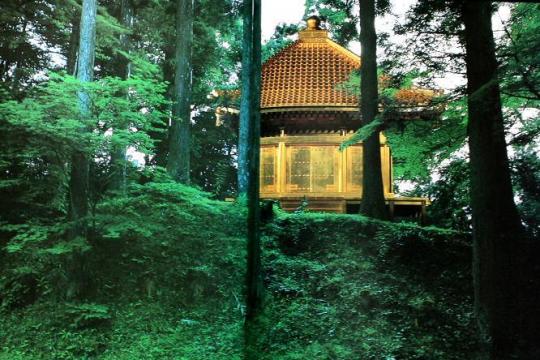
木にまつわる伝説・神話
仏教の樹木 (3)
金輪王 (こんりん‐おう) 〜 3000年に一度、うどんげの花(参照)とともに現れる弥勒菩薩
体色は金色で七宝冠を戴き全身から光を放つ。印を結んで七宝で飾られた蓮の花の上に結跏趺坐する。座っている蓮華の下に輪宝、さらにその下に宝池がある。
転輪聖王のうち最も優れた金輪王は、仏頂尊 (如来の優れた頭脳、人々を救済する知性を神格化したもの)の霊験が極めて優れている。
仏典の記述によれば、転輪聖王 (てんりんじょうおう、転輪王とも)の概念とは大まかに以下のようなものであった:
世界は繁栄と衰退の循環を繰り返し、繁栄の時には人間の寿命は8万年であるが、人間の徳が失われるにつれて寿命は短くなり、全ての善が失われた暗黒の時代には10年となる。その後、人間の徳は回復し、再び8万年の寿命がある繁栄の時代を迎える。
転輪聖王が出現するのはこの繁栄の時代であり、彼は前世における善行の結果、転輪聖王として現れる。ブッダのような大いなる存在を意味する32の希少で特別な身体的特徴(参照)を持ち、4つの海に至るまでの大地を、武力を用いる事無く、法の力を以って統治する。
転輪聖王には金輪王、銀輪王、銅輪王、鉄輪王の4種類がある。鉄輪王は鉄の輪宝を持ち、古代インドの世界観で地球上に4つあるとされた大陸のうち、1つの大陸を支配する。同様に銅輪王は銅の輪宝を持ち、2つの大陸を、銀輪王は銀の輪宝を持ち、3つの大陸を支配する。そして最上の転輪聖王である金輪王は、金の輪宝を持ち、4つの大陸全てを支配するという。そのため金輪王の周りには、転輪聖王が従えるという七つの宝が配置されている。
転輪聖王は七種の宝と徳性を持つと言う:
輪宝 (チャッカラタナ): 四方に転がり、王に大地を平定させる
象宝 (ハッティラタナ): 空をも飛ぶ純白の象
馬宝 (アッサラタナ): 空をも飛ぶ純白の馬
珠宝 (マニラタナ): 発する光明が1由旬(12–15 km)にも達する宝石
女宝 (イッティラタナ): 美貌と芳香を持つ従順かつ貞節な王妃
居士宝 (ガハパティラタナ): 国を支える財力ある市民
将軍宝 (パリナーヤカラタナ): 賢明さ、有能さ、練達を備えた智将
また四種の神徳を持つと言う:
美貌
長寿
少病少悩
バラモン・ガハパティからの敬愛と彼らに対する慈愛
#wheel turning kings#golden wheel king#maitreya#buddism#7 treasures#4 divine virtues#trees in buddhism#udumbara#golden hall#Chusonji-temple#philosophy#nature#art
121 notes
·
View notes
Text
This is probably a wildly unpopular thing to say, but I see chatter and takes concerning Hyrule and the Hylians and Hylia where the fandom dissects them as white European, or more often British coded. I've seen it be argued that this is because of surface level European (like Greco-Roman and Celtic) aesthetics are commonly used for them, though these are pretty shallow wrapping paper at best in game. Not that similarities can't be drawn! I'm saying this with all my Irish distaste for Britain! But it seems to be more of a symptom of ignorance or unfamiliarity with Japanese culture and history, and its own tilt at Imperialism.
Which I get! The average Western Fan's closest touchstone to Imperialism is likely Britain.
But Hyrule represents Japan. It's narrative is deeply rooted in Japanese Shinto beliefs regarding the relationship between man, nature and spirits-- including spiritual purity and impurity-- as derived from Buddhist concepts. Hylians are a fantasy race of elves who are Japanese coded, their Royal Family and Imperial structure and attitudes reflect a Japanese Nationalism that is deeply tied to Shinto. Hylia reflects aspects of the Goddess Amaterasu and her role as a progenitor of Emperors in Japanese myth.
I fully understand that many criticisms that apply also pertain to British Imperialism and their own Divine Hegemony, which is valid. But I think it's also falling short to critique and dissect the meta and intention behind this franchise without bothering to have the context of Japanese beliefs and history, and without bothering to really seek it out.
JP Imperialism formed as a response to the Western encroach and their subsequent focus on forced unification of the east in order to defend against it is deeply reflected in how Hyrule operates. The localisation of games like SkSw and TotK have wildly missed their mark in the impression that they give of certain concepts to especially the North American audience, and entire concepts and references to cultural beliefs and history (and what they might imply within game) are simply invisible to many who do not have that context to connect back to.
And I'm not trying to say that what anybody takes from the story they personally received isn't a valid impression based on their own experience with the games and media around them. There are many interpretations and themes that you can take away and play with.
But I don't think that saying Hylians are just white people coded or following Christianised themes or 'basically Britain' and calling it a day is quite good enough if you want to meaningfully and accurately discuss and dissect the narrative and intent of the Zelda franchise. Being able to critically read it with both external and Japanese context is really important in having the full conversation about what it reflects on real world history, religiosity and nuance.
#shut up hero#And yeah I've been in the fandom since the 90s like I'm very aware that the eldest games had some particular Christian imagery#like that one illustration of Link praying to a cross and the presence of a 'bible' in game#as well as a connection to the idea of foreign knights#borrowed European religious symbols (and even other ones) was pretty par for course to see in Japanese fantasy and RPGs at surface level#there's really no depth to them beyond implying the vibes you know?#the og LOZ was inspired by Miyamoto exploring the forest behind an Inari Shrine#same shrine inspired starfox tbh#Ganon as was recently discussed is based on Cho Hakkai and Ox King in Journey to the West#but it's always been Shinto in approach and philosophy since the beginning#SkSw era forward has just made it undeniably more JP nationalist in shape
50 notes
·
View notes
Text
I just finished the Magnus Archives for the first time, and I'm just gonna get my thoughts out
When I started the podcast back in June, I was beginning a solo art installation based on botanical studies. When I say beginning, I mean I had just received the funding for it.
I'm a photographer first and foremost, but I also dabble in painting and creative nonfiction. What I did for the exhibition was take photos of plants in a region that had never been studied from a floral perspective before. I also gathered water from local sources to paint the landscapes, and wrote small prose pieces to go along with it.
The areas I went to for this project were very deep within the mountains. So remote, in fact, that the only person I'd see for days on end was the botanist I was working with.
As I write, that exhibition is being taken down. The finished pieces are being placed into storage by my funder after being shown for the past 2 months. I only found out about its ending last night, as I now live in the UK.
I'm writing all this because of the strange coincidence that my exhibition was ended prematurely right as I finish the podcast that got me through it. It's emotional, thinking about how I listened to Angler Fish as I was beginning my preliminary sketches, but I just finished Last Words editing a photo for a completely different project.
The Magnus Archives is, frankly, a lot to chew on. A good bit of food, mind you, but a lot. As someone studying to work in film theory (yes, I do too much, no, I don't sleep, no, I will not stop) it's rare to find any piece of media that is so deeply complex, yet is far more original than most other things today.
I could go on about so many different parts of the podcast. The moral implications of the actions and beliefs of the Archivist. The utilization of experiential creativity to draft a powerful, distinct narrative. The use of the medium to utilize the audience's imagination and force them to project their own experiences onto this concept. The debate over who may have truly had a choice and who had everything determined for them. I'll probably write more about this stuff in the future, and I haven't even begun to think about all the goofy stuff I could say.
The ending of my exhibition itself was rather unsatisfying for a number of reasons. But the ending of the Magnus Archives was anything but. That podcast was a masterfully crafted, uniquely original, and deeply thought-provoking narrative. I, frankly, don't have many words at the moment, and I believe it would be a disservice to my experience of the podcast to try and force anything beyond this out.
So, yeah. The Magnus Archives was phenomenal. This is not the last rant you'll be hearing from me about it.
#if you actually read this just know i'm kissing you on the mouth rn#the second that last tape clicked off i started bawling my eyes out#i think i scared my flatmate#sorry sam#the magnus archives#the magnus protocol#magnus#tma#tma podcast#jonathan sims#martin blackwood#basira hussain#melanie king#georgie barker#elias bouchard#rusty quill#mag#mag 200#film theory#philosophy#podcast#corner conversations
53 notes
·
View notes
Text

#simple man#manliness#simple life#traditional gender roles#christian manhood#traditional manhood#chivalry#tradblr#traditional man#gentleman#patriarchy#pro patriarchy#male leadership#man lead#men are kings#men are priests#men are builders#protect and serve#seneca#stoic philosophy#stoicism#virtue#the pursuit of virtue
19 notes
·
View notes
Text
Hey y’all I’m back and I made a silly little quiz.
#vaguely merlin inspired#excessive taylor swift lyrics#also vaguely Anthony doerr inspired#I’m not kidding read his books#classics#uquiz quiz#character quiz#personality quiz#soldier poet king#bbc merlin#anthony doerr#bookish#taylor swift#gracie abrams#phoebe bridgers#swiftie#lgbtq#leigh bardugo#philosophy#romance#mentalheathawareness#mental health
53 notes
·
View notes
Text
Having random human in hallownest thoughts again but uhhhhh
What if. Like pre hallownest times, giant human, giant wyrm, giant root. Just, traveling
#i dont think it would have any sort of plot i just think itd be neat#also the human can hold wyrm!pk and giant root god!wl of course#so they just travel. and see the sights. and maybe talk abt philosophy or whatever#hollow knight#pale king hollow knight#the white lady#white lady hollow knight#nighty chatter#human in hollow nest#human in hallow nest
217 notes
·
View notes